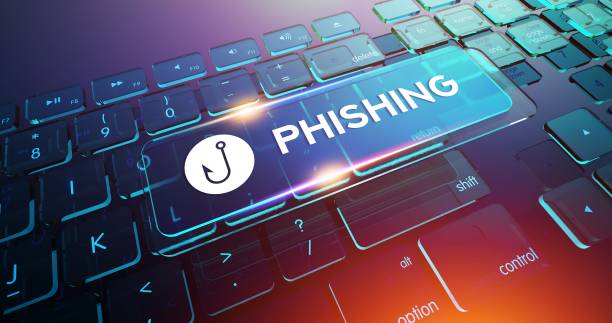Over the past decade, cyber-attacks have become much more prominent and vicious than ever before. Phishing isn’t the only type of cyber-attack, but it is one of the most common.

What exactly do these attacks entail? How can you avoid them? Today, we’re going to cover what phishing is and how you can protect your business from this type of cyber-attack.
First things first, what exactly is phishing?
Phishing occurs when an individual (or individuals) poses as another person or a corporation in order to gain access to someone’s information. They mostly reach out via email, although sometimes they may contact targets via text message or phone calls.
Phishers often pose as a trusted contact and attempt to lure their targets into providing sensitive data, such as account logins, passwords, credit card information, and banking details. The information they collect helps them access important accounts or details that can ultimately result in identity theft and major financial loss.
Some common examples of phishing include:
- Unknown Sender or Requests – These messages often look like they’re coming from someone random with a story that pulls on your heartstrings. It could also be designed to appear as if it’s from someone you know, but with an odd request sent from a different email. Some examples of these requests include asking for gift cards or money to help a soldier return home.
- Unexpected Attachments – Unexpected or suspicious-looking attachments can contain ransomware or other viruses.
- Suspicious Hyperlinks – Links can appear very different from what they actually are due to scammers editing the link text to look more believable.
- Sense of Urgency – Some phishers will claim that a special deal is only available for a limited time or that account updates are needed immediately to avoid account closure. An extremely common example usually consists of someone pretending to be your boss and asking that you go out to purchase gift cards and send the gift card information over to them.
- Too Good to Be True Opportunity – Phishers will sometimes send offers that seem too good to be true, i.e., winning the lottery, receiving a free iPhone, an all-inclusive trip, etc.
Why are phishing attempts so easy to fall for?
There are many reasons why someone might fall for a phishing scam, and they are not a one-size-fits-all type of scam. One person could fall for one message, while another could fall for a completely different kind of phishing attempt.
Here are a few common reasons why someone might fall for a phishing attempt:
- Believing they aren’t vulnerable to these threats – As phishing has become more prominent over the years, some people automatically think they wouldn’t fall for one, creating a false sense of security and the belief that those around them are much more vulnerable.
- Security isn’t a top priority – With the rising prominence of remote work over the past few years, workers experience an entirely new mix of challenges. They might find themselves juggling more issues, and roper security protocols could get pushed to the back of their mind as a result. This is especially true if their remote work requires using their personal device rather than work equipment.
- Lack of awareness – Whether their company hasn’t provided enough information regarding cybersecurity or the individual hasn’t taken time to fully understand the threats, some users are simply unaware of the dangers of phishing and how easily they can occur.
How can you protect your business and employees from these attacks?
Overall, one of the best ways to avoid a vicious phishing attack is to build awareness among your organization and employees. At Netmaker Communications, our cybersecurity services provide training and exercises specific to your organization to ensure your colleagues understand the risks of cyber-attacks such as phishing.
Some other ways to prevent phishing or other cyber-attacks are:
- Implement security software on all devices
- Update software automatically or as soon as updates become available
- Back up data frequently
- Utilize multi-factor authentication. [NOTE: multi-factor authentication is better as an overall security posture because attackers could potentially gain access to your backup security methods as well and still perform a phishing attack.]
Visit Netmaker Communications for the best IT consulting and services around Winchester, VA! Our team of experts will ensure your data and confidential information are secure and safe from all types of cyber-attacks.
If you’re interested in our services or have a question regarding what we offer, contact us today to learn more!
